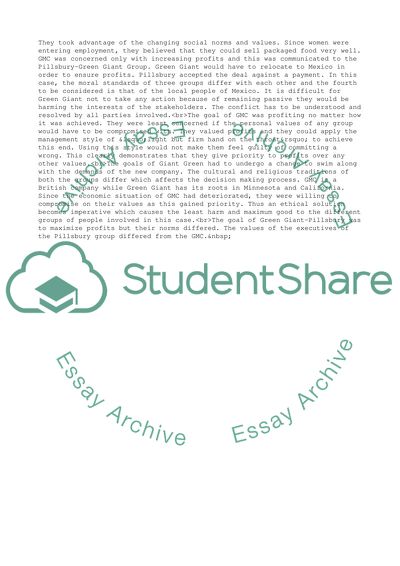Cite this document
(“Different Moral Standards Essay Example | Topics and Well Written Essays - 2250 words”, n.d.)
Retrieved from https://studentshare.org/business/1550931-business-ethics-case-study
Retrieved from https://studentshare.org/business/1550931-business-ethics-case-study
(Different Moral Standards Essay Example | Topics and Well Written Essays - 2250 Words)
https://studentshare.org/business/1550931-business-ethics-case-study.
https://studentshare.org/business/1550931-business-ethics-case-study.
“Different Moral Standards Essay Example | Topics and Well Written Essays - 2250 Words”, n.d. https://studentshare.org/business/1550931-business-ethics-case-study.


